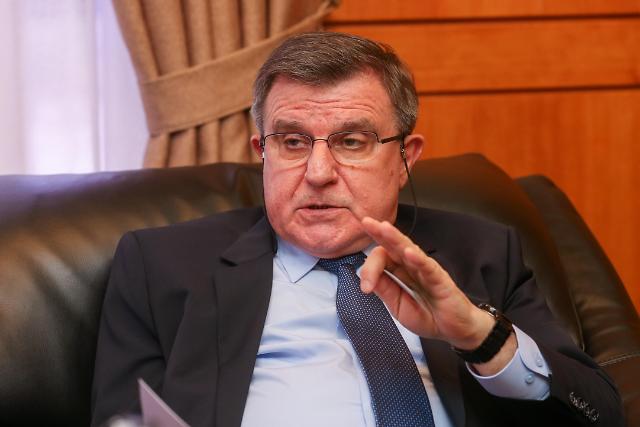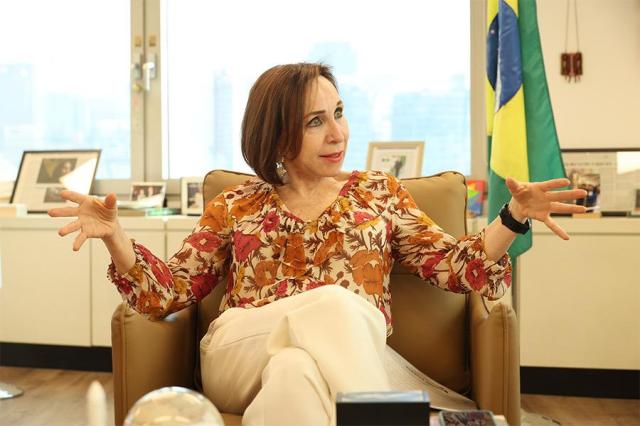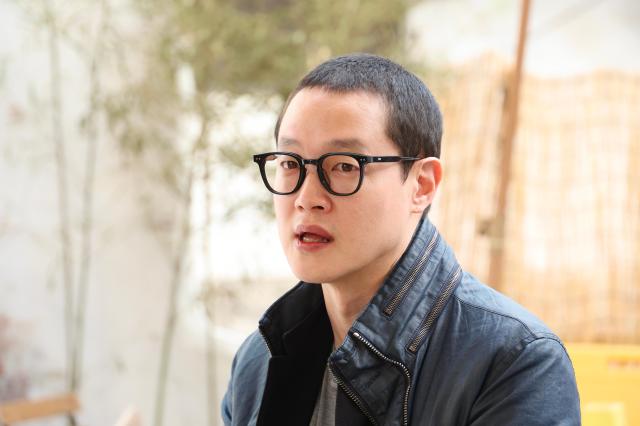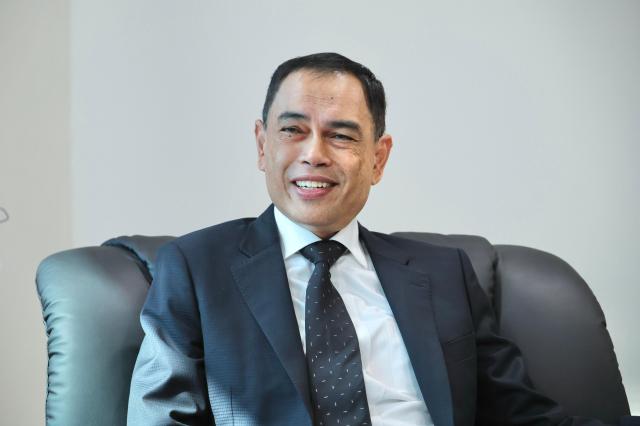
Andrey Borisovich Kulik, the Russian Ambassador to South Korea
[Photograph by Namkung Jinwoong = timeid@ajunews.com]
SEOUL -- About 15 months after the war between Russia and Ukraine broke out in February 2022, the Russo-South Korean relationship, which had maintained a good mood over the last 30 years, is turning sour as Seoul sided with the United States and its allies that show support for Ukraine. To prevent the situation deteriorate into the worst-case scenario, Russia clearly drew the red line over South Korea supplying weapons to Ukraine.
Since the war started, South Korea has maintained its stern stance not to sell any kind of weaponry and ammunition to countries at war. Moscow consistently sent out warnings to Seoul but did not strongly object to the provision of humanitarian aid for Ukraine. However, the situation took a wild turn when the United States secret intelligence documents leaked in April 2023 showed that Seoul has been backfilling U.S. and Poland's ammunition stocks and selling Poland tanks and howitzers, and ammo to replace what Poland sends to Ukraine.
"Russia has made it clear in 2022 that the act of supplying weaponry to Ukraine is the absolute red line which South Korea should not cross," Andrey Borisovich Kulik, the Russian Ambassador to South Korea, said during an interview with Aju Business Daily.
Ambassador Kulik, who is a veteran diplomat specializing in foreign affairs in the East Asian region, stressed that Russia was aware there were chances that South Korea could provide weapons to Ukraine. "For a long time, there were stories that South Korea, pressured by the United States, is considering providing weapons to Ukraine," the envoy said.
Kulik said that if the rumors are found to be true, many sectors including the trade, cultural, and financial sectors in both countries will be heavily affected. The envoy emphasized the importance of Seoul's decision. If Seoul chooses to continue following Washington, the friendship between South Korea and Russia will be literally shattered.
The envoy expressed deep regrets over the current situation between the two countries. "I deeply regret the current situation, especially when I look back on the long history of the relationship between Russia and South Korea," Kulik said.
The official diplomatic relationship between South Korea and Russia was tied in 1990 just before the collapse of the Soviet Union but the friendship between the two countries goes a long way back to the 19th century. The Russian Empire and the Joseon Dynasty (1392~1897) forged the Russo-Korean Treaty in 1884 and provided safe havens for Koreans during the Japanese imperial colonial rule (1910~1945).
"Russia played a big part in the independence of the Korean peninsula from the Japanese occupation by helping independence activists. We also helped refugees from Joseon settle in Russia," the Russian ambassador said. After the establishment of formal diplomatic relations between Russia and South Korea, Moscow also helped Seoul develop its missile and rocket technologies. Many South Korean military armored vehicles, missiles, and rockets were based on Russian tech that was transferred after the collapse of the Soviet Union.
South Korea's space program was the luckiest beneficiary of the Russian space technology transfer project as the country has seen slow progress as advanced countries were reluctant to transfer core technologies. Three space rockets have been launched but two fired in 2009 and 2010 failed to reach the earth's targeted orbit. The third one using Russian technology put a satellite into orbit in 2013.
But the good, long relationship between the two countries was shaken in February 2022, when former South Korean President Moon Jae-in decided to join international sanctions against Russia, expressing regret over Russia's attack on Ukraine. Moon stressed that any use of armed forces that causes human casualties cannot be justified.
President Yoon Suk-yeol, who took office in May 2022, also maintained the government's stance on the war in Ukraine. Yoon said that if there is a situation such as a large-scale civilian massacre or serious violation of the rules of engagement, it will be difficult for South Korea to only insist on humanitarian or financial support for Ukraine.
Despite diplomatic tensions between Russia and South Korea, the demand for cooperation and mutual development in the private sector remains high. The Russian Embassy in Seoul has confirmed that communication with its South Korean administrative counterparts is still ongoing, but trade volumes and the level of cultural exchange in the private sector have decreased along with opportunities for other economic cooperation.
Before Seoul joined the international sanctions against Moscow, South Korean products including smartphones made by Samsung Electronics and home appliances made by LG Electronics were very popular in Russia. According to a survey conducted by the Korean Culture and Information Service (KOCIS) under the culture ministry, Samsung, Hyundai Motor and LG were the top brands favored by Russians.
Now, Russia has become a barren market for South Korean companies after Seoul added a total of 798 product categories subjected to export sanctions against Russia. Money transfer by the SWIFT banking system was temporarily banned and South Korean factories are left inoperable due to materials and parts not being exported to Russia. According to media reports, Hyundai Motor is considering selling its vehicle factories to a Kazakh car company operating in Russia.
The export volume to Russia stood at about $7.8 billion in 2019, just before the war in Ukraine. The export volume dropped to about $6.3 billion in 2022. Exports of vehicles stood at $883 million in 2022, down 65.4 percent from a year ago.
The ambassador defended Moscow saying that it was not Russia which imposed sanctions. "Russia did not cause any of these difficult situations. We did not exclude ourselves from the SWIFT network. We did not restrict the transfer of dollars. We also did not restrict the kinds of products and materials imported into Russia," Kulik said.
The veteran diplomat stressed that South Korea would not be able to solve any problem regarding its diplomatic and economic relations through sanctions and political pressure. "Russia believes that the only solution for South Korea to solve diplomatic problems is through politics and diplomacy," the envoy said, emphasizing that joining sanctions against Russia will have no effect and only increase military tension in the Korean peninsula.
While the diplomatic relationship between Moscow and Seoul is locked in a stalemate position, Ambassador Kulik said that he believes that it is important for private-level exchanges in various sectors should continue. "Especially, exchanges in the humanities and cultural sectors should continue. Civic groups from Russia and South Korea are trying to maintain their exchange levels but it is not easy in the current situation," Kulik said.
The Moscow State Tchaikovsky Conservatory Academic Music College is Russia's iconic musical artist incubator. Many South Korean students have graduated from the prestigious music school and they have a community in Seoul where they share information and have regular gatherings.
The envoy said that the graduates from the Tchaikovsky music academy visited the Russian Embassy in Seoul in early 2023 and promised to hold a joint event in September. The event is designed to commemorate the establishment of the academy and the alumni will participate as performing artists.
Nikita Vlasov, a famous Russian accordionist, also held a concert in the western port city of Incheon in April and performed a concerto with a South Korean orchestra team. "Although the situation is not easy, our shared life continues through cooperation," the envoy said.
Copyright ⓒ Aju Press All rights reserved.





View more comments